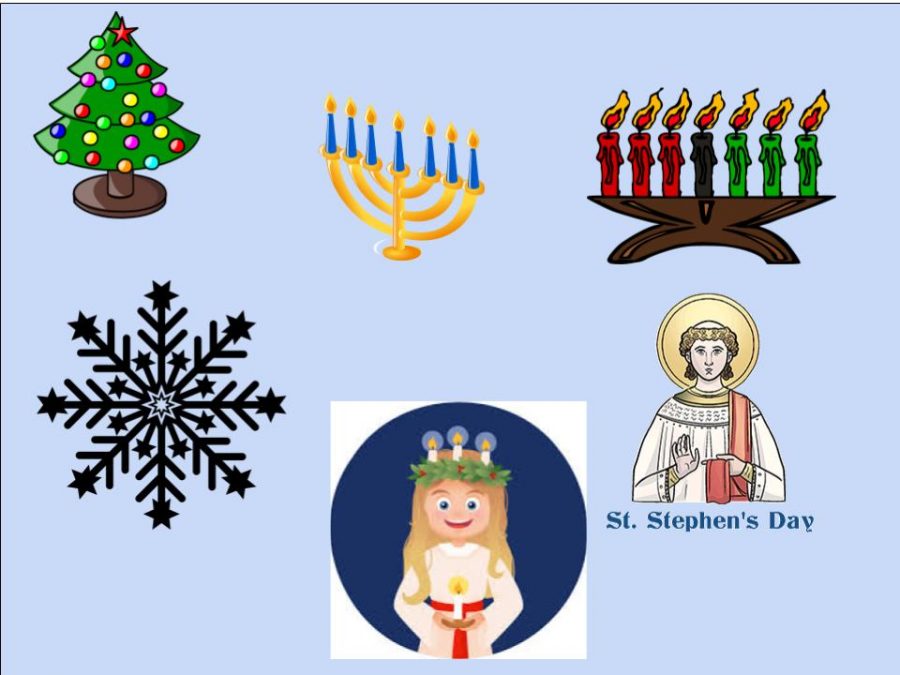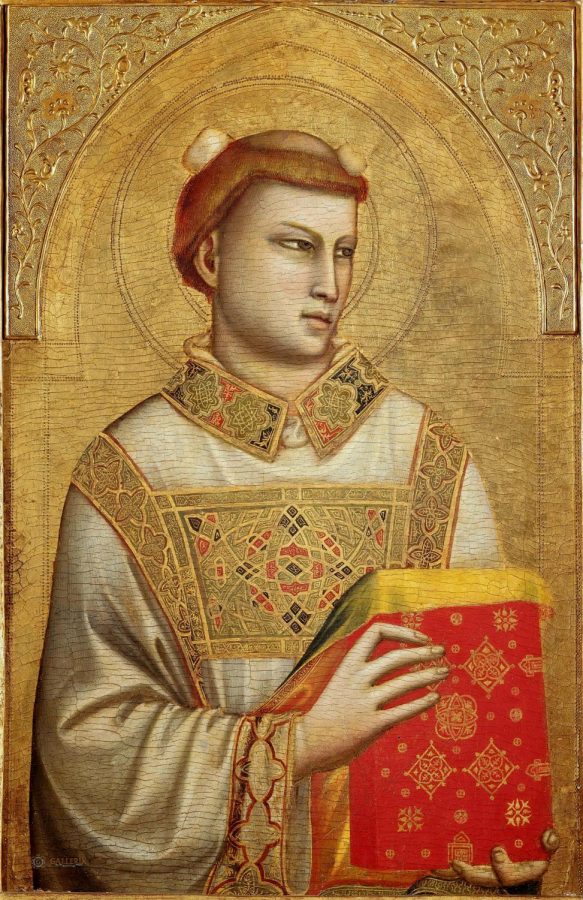Celebrating Winter Around the World
January 9, 2020
Snow falls gently from the sky, and glitters on the ground. Everyone smiles a little brighter, and yummy treats abound. Whatever culture you come from and wherever you are now, winter is a time to celebrate, though some may wonder, “how?”
Every household celebrates the season a little differently. Most Alder students celebrate Christmas, but it’s not the only winter holiday by far. Hanukkah, Kwanzaa, Yule, St. Lucia Day, and St. Stephen’s day are just some of the ways people from around the world enjoy this chilly time of year.
St. Lucia Day
On December 13th, Sweden celebrates St. Lucia day. Though wintertime may be fairly dark, St. Lucia day “is all about light,” according to senior exchange student Julia Elm.
“Lucia is an ancient mythical figure,” says the official website of Sweden, “with an abiding role as a bearer of light in the dark Swedish winters.”
During this celebration, a girl will dress up as Lucia by wearing a white robe and a crown of candles, while other children follow behind her. “Every school has a Lucia celebration, and there’s one big one for the country, and some families have their own celebrations,” says Elm. “If it’s in the family, Lucia is the oldest daughter.” The celebration also includes eating sweet saffron buns (lussekatter) and gingersnaps (pepparkakor).
Yule
One of the earliest known winter holidays is Yule, which celebrates the Winter Solstice around December 21st. The holiday originated from both the Norse Jul and the Roman Saturnalia celebrations, according to the website Learn Religions.
Jul celebrated the longest night of the year as well as the rebirth of the light, and honored the Norse god Odin. It was celebrated with feasts, burning a sacred log, and decorating a tree—a tradition later adopted for Christmas.
Saturnalia, on the other hand, honored the Roman god Saturn, and involved gift-giving, feasting, and caroling.
Today, Yule is celebrated by Pagans and Wiccans. Like Jul, Yule celebrates the receding darkness, and some consider it the beginning of the new year. Those who celebrate Yule might decorate altars for the holiday, create a Yule log (often a cake rather than a real piece of wood), and perform rituals to welcome back the sun and cleanse for the new year.
Hanukkah
Hanukkah, which fell on December 22nd–30th this season, is likely the most well-known winter holiday other than Christmas.
According to History.com, Hanukkah was created around 164 B.C., when Jews in Jerusalem reclaimed their Second Temple. While rebuilding and rededicating the temple, the Jews lit the menorah, and though the small amount of oil inside should have only burned for a day, the flame lasted for eight days and eight nights.
Today, those who celebrate Hanukkah, like fifth-grader Kamila Shiblaq, do so over eight days. “There are nine candles in the menorah,” says Shiblaq, “and the one in the middle is called the shammash, and we use it to light all of the others. During Hanukkah, we light one candle every night at sunset.” Hanukkah traditions also include giving gifts, playing dreidel, and eating foods fried in oil as a nod to that drop that burned for eight nights.
St. Stephen’s Day
In Italy, many like junior exchange student Francesca Covre celebrate St. Stephen’s day on December 26th.
From Italy Magazine: “Traditionally Italians stay at home with their families on Christmas day, but St. Stephen’s day is a cause for celebration; it’s a day where people wrap up and go out with friends and family.”
Most Italians celebrate by assisting the less fortunate, visiting nativity scenes put together by churches and towns, and eating a small feast. “We gather around with other relatives and eat what leftover from Christmas,” says Covre.
Kwanzaa
Though many people know that Kwanzaa exists, not many people know what it actually is. From December 26th to January 1st, Kwanzaa celebrates African-American culture.
The holiday was created in 1966 by Dr. Maulana Karenga, who combined several traditional African harvest celebrations. “On each of the seven nights,” says History.com, “the family gathers and a child lights one of the candles on the Kinara, then one of the seven principles is discussed.” These principles, translated from Swahili, are unity, self-determination, collective work and responsibility, cooperative economics, purpose, creativity, and faith; they contribute to building and reinforcing community among African-Americans.
No matter what holidays you celebrate or don’t, winter is a joyous time all around the globe. So whether you’re gifting, helping others, or honoring the light—happy holidays to all, and to all a good night!










